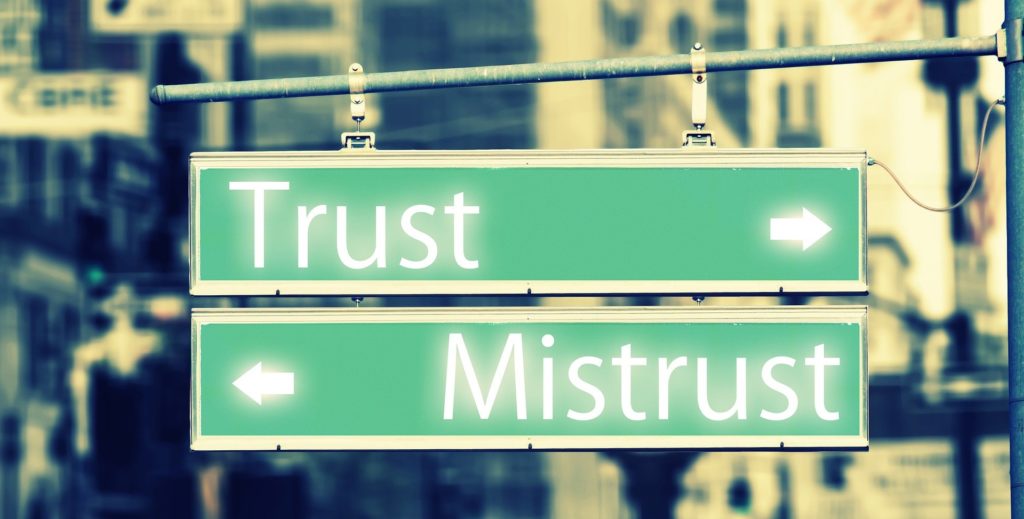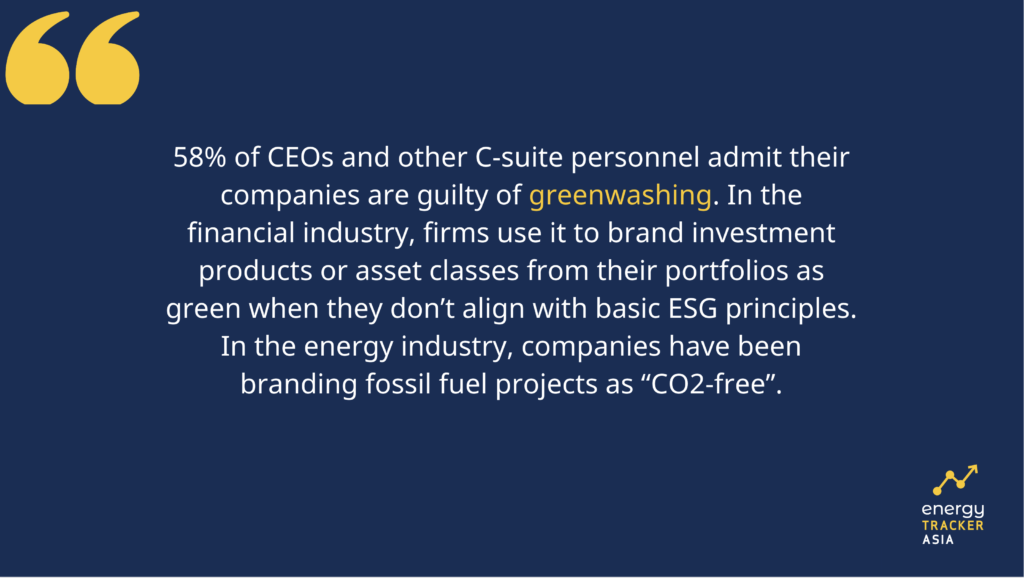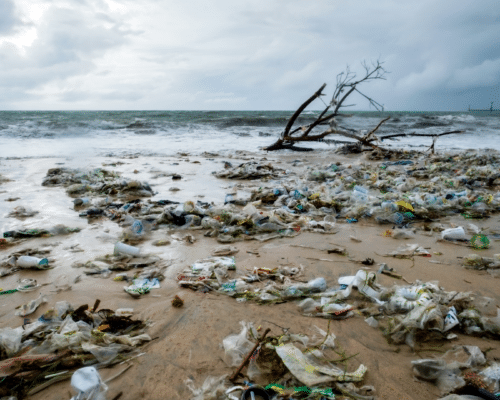How to Avoid Greenwashing: A Guide for Sustainable Businesses and Marketing Leaders
06 June 2022 – by Viktor Tachev
If more sustainable business leaders looked at how they could avoid greenwashing practices, they would be much better off. Yet, we are at a point where most business and marketing leaders worldwide find greenwashing tempting. It is a tool that capitalises on the currently changing consumer preferences while also allowing businesses to continue operating as usual. However, the market’s natural selection principle will be able to distinguish between the companies that are taking meaningful action and those that are deceiving the public in the name of green marketing.
Corporate Greenwashing Statistics and Environmental Claims
Today, 58% of CEOs and other C-suite personnel admit their companies are guilty of greenwashing. In the US, the figure is around 68%. Corporate greenwashing comes in all shapes and forms.
In the financial industry, banks and investment firms use it to brand investment products or asset classes from their portfolios as environmentally friendly and green when, in reality, they don’t align with basic ESG principles.
In the energy industry, companies have been branding fossil fuel projects as “CO2-free.”
Also, consumer brands are greenwashing plastic waste.
Cases like these have led to ongoing disputes, with NGOs and activists on one side and corporations on the other. The debate is ongoing. However, the clock is ticking, and the window for avoiding the worst impacts of climate change is closing. Brands should back up their green claims and should adopt green practices.
How to Avoid Greenwashing for a Positive Environmental Impact
Today, businesses should be ready to justify their climate-related actions and do their part to decarbonise the world. Furthermore, they should be honest and transparent about their actions and sustainability efforts. Generic claims about environmental credentials or false claims about sustainable practices would no longer be tolerated.
Misleading claims can lead to various consequences – from dealing with regulators, activists, and litigators, to suffering financial losses, reputation damage and loss of consumer confidence. The last part is more important than ever. The public is tired of being lied to, especially when it comes to critical matters for the future. Companies have to provide concrete evidence of their sustainability credentials.
Business leaders who are willing to step up and find ways of avoiding greenwashing should focus on several crucial steps.

Net-Zero Companies: Vague Pledges Lead to Greenwashing
Read moreTake Meaningful Action and Avoid Distractions
Net-Zero Tracker finds that many public companies’ adopted policies have undermined any real opportunity to achieve net-zero. Even the world’s biggest businesses are guilty of exaggerating their progress.
The reason is that companies are either not honest about their decarbonisation or are prioritising the use of green PR. An example is the use of carbon offsets, which scientists and campaigners both find inadequate and even harmful. Many companies continue to do business as usual and then offset their carbon footprint by paying third parties to plant trees. After an investigation revealed that its leading offsetting projects didn’t demonstrate any clear benefit to the climate, Shell fell under public scrutiny. Other fossil fuel giants are also relying on carbon credits, with no real effect.
However, while others are busy with greenwashing or backing fossil fuels behind the scenes, some companies have led by example. Insurance firm AIA ended coal exposure seven years ahead of schedule. The company plans to incorporate science-based targets across its entire USD 286 billion portfolio.
More corporate leaders need to follow AIA’s lead for the good of the world and their own good. Taking meaningful action today can set up businesses for long-term success in the booming “green” market. On the other hand, failure to do so can erode public trust and tarnish a brand’s reputation, leading to the loss of investments, revenue or potential growth opportunities.

Communicate Honestly and Transparently
Studies reveal that many companies aren’t backing up their claims despite the growing momentum in climate commitment reporting. Instead, businesses have been making vague net-zero pledges for PR reasons to appease stakeholders.
Today, there are many issues with net-zero pledges, including the loopholes that allow companies to exaggerate their results, like in Volkswagen’s case. The company was found faking its vehicle emissions results.
However, investors and stakeholders are becoming better at recognising greenwashing and companies that refuse to act. Furthermore, they are ready to punish them by tarnishing their reputation and boycotting their products or services. In the era of social media, greenwashing can be a death sentence for companies, given the number of sustainability-minded individuals dominating the market.
Business leaders should prioritise making genuine efforts for transparent reporting and not be afraid to embrace their critics. Business leaders must be specific in their communication and showcase both the good and the bad results. Often, avoiding the negative side is equal to lying about it. Either way, the market will inevitably reveal the actual picture at some point. However, it might be too late to save face. For example, despite the clean energy claims of companies like Chevron, ExxonMobil and Shell, studies have revealed a continuing dependence on fossil fuels along with insignificant spending on clean energy, justifying the greenwashing accusations.
A clear strategy with measurable goals can signal that a company is serious about making a change. Along with saying the right things, business leaders should ensure that their companies also deliver on them.

Be Proactive, Not Reactive
Fighting the climate crisis requires persistent, collective and self-driven efforts.
Unfortunately, many companies are waiting to feel the pressure from regulators or must be pushed by their stakeholders before they act. After analyzing the Fortune 500 companies in 2021, the WWF found that only 13% had science-based targets.
The scarcity of regulations governing ESG measures and the fact that reporting is voluntary and often aspirational shouldn’t be reasons for companies to remain passive. Instead, they should be looking to satisfy investors’ hunger for reliable data.
Taking the lead in communication with investors and stakeholders shapes the image of a company that wants to be aligned with a climate-friendly future. The Body Shop is a perfect example of how businesses should proactively engage in a dialogue with their clients. The company invited youth activists to discuss how its actions look in their eyes.
How to Avoid Greenwashing? Be Honest and Embrace the Change
Despite the link between the climate crisis and the loss of economic wealth, companies remain focused on making short-term profits. Businesses should not only declare that they realise the impact of the climate emergency, but they should do their part to remedy it. Business leaders should realise that the devastating effect of corporate greenwashing isn’t limited only to global net-zero goals but also eats their profits. Once they realise this, they will find the motivation to take meaningful action.

by Viktor Tachev
Viktor has years of experience in financial markets and energy finance, working as a marketing consultant and content creator for leading institutions, NGOs, and tech startups. He is a regular contributor to knowledge hubs and magazines, tackling the latest trends in sustainability and green energy.
Read more


